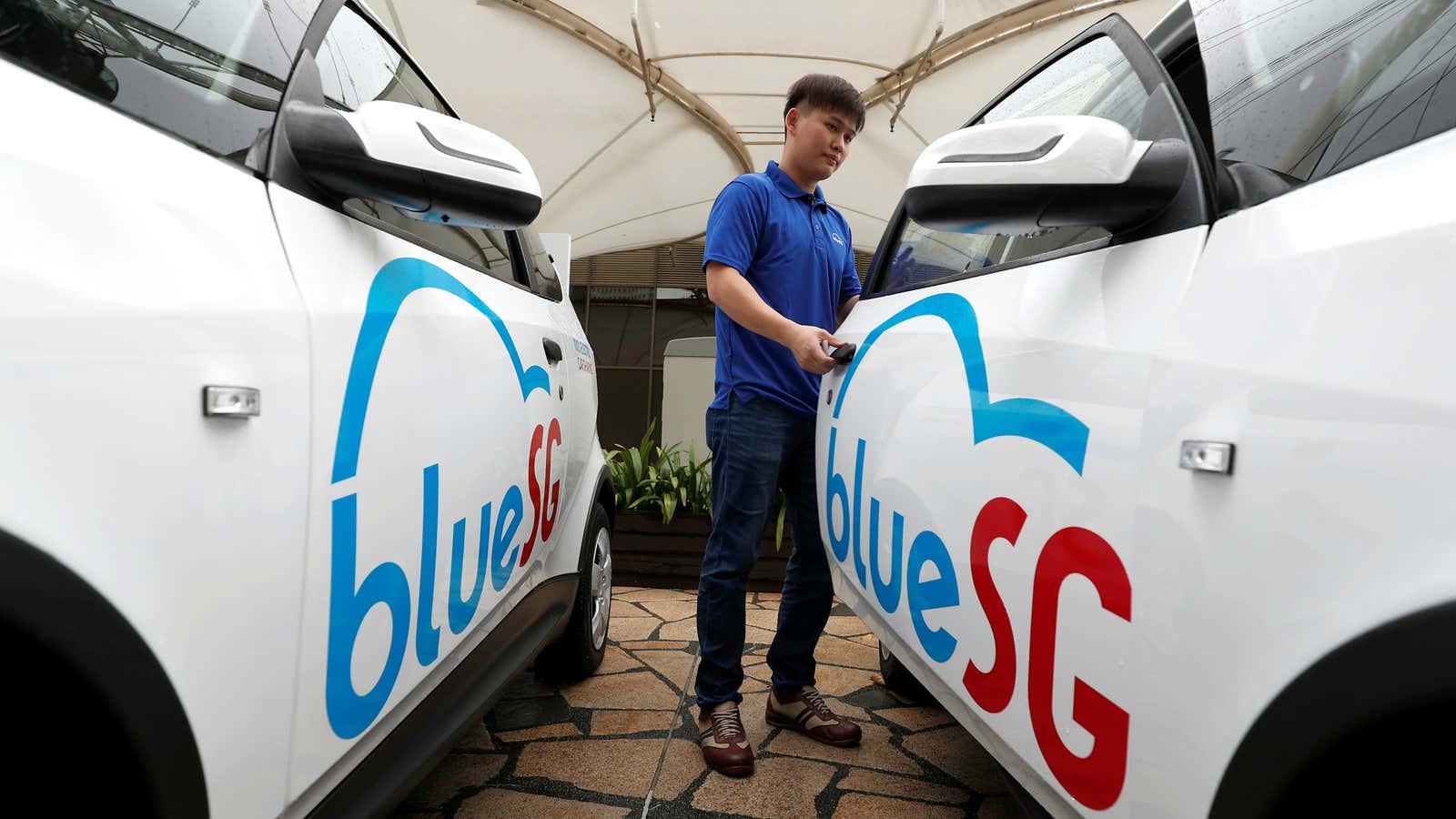Singapore, one of the most expensive places on earth to own a car, is steadily reducing the numbers of private vehicles on its roads. Yet to ensure residents can get a ride, it’s promoting electric-car sharing.
As part of those plans, BlueSG, which bills itself as an emissions-free, use-when-you-want car-sharing service, launched in Singapore on Tuesday (Dec. 12). The company offers 80 electric cars that users can rent through an app, drive to their destination, and then drop off at one of 32 parking locations across the island. Singapore is already home to at least three car-sharing firms—Smove, CarClub, and WhizzCar—which had a combined membership of more than 20,000 members in 2016.
While those car-sharing options charge by the hour, BlueSG charges by the minute—with a minimum rental time lasting 15 minutes. Members can sign up for a premium service with a monthly fee of S$15 (about US$11), and pay a lower charge per minute, or avoid recurring fees and pay a higher rate. A 32-minute car ride should amount to about US$11.90 under the cheaper membership plan. At the end, drivers can return the car to a designated BlueSG parking spot, and plug it in for charging.
According to the local media outlet Straits Times, drivers rented out BlueSG more than 100 times in the first three hours, and about 2,000 people have signed up with the service as of this week.
BlueSG is a car-sharing subsidiary of French energy-and-logistics conglomerate the Bolloré Group, which already offers similar services in France, Italy, the United Kingdom and the United States. The cars use batteries from another Bolloré subsidiary, Blue Solutions. BlueSG hopes to have some 1,000 electric cars on offer in the city-state in about four years. For comparison, Smove, CarClub, and WhizzCar had a fleet of 500 or so vehicles last year.
Between 2011 and 2016, the number of rental cars in Singapore increased more than 250% (pdf, p. 22), while the numbers of regular taxis grew far less.
In France, the Straits Times reports, “the average usage for the company’s electric fleet is seven rentals per day per car,” but the company expects usage to be higher in Singapore due to the greater population density.
Singapore’s recent policy moves could help with uptake too. Owning a car requires bidding for an expensive “certificate of entitlement,” which can sometimes amount to more than half a vehicle’s final cost. The government declared that it would target zero growth of these types of personal vehicles starting February next year.
Still, BlueSG cars will face stiff competition from Singapore’s seven taxi operators, as well as from ride-hailing firms Uber and its local rival GrabTaxi.
Singapore has been investing in other transport options as well, including expanding its three-decade old subway system. US-based startup NuTonomy also hopes to launch in Singapore next year, which could make the city one of the first places on earth to have self-driving taxis on its streets.
